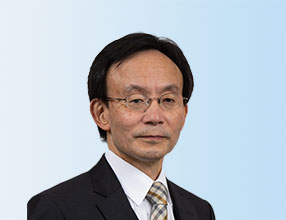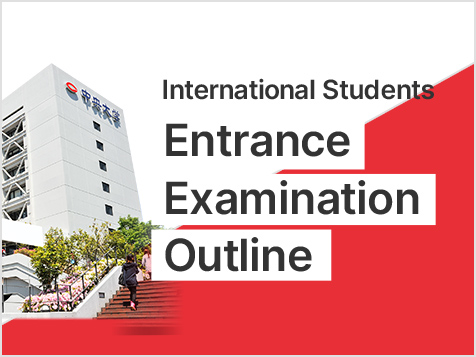Academics
Graduate School of Law
The Graduate School of Law offers a curriculum for students to gain advanced research skills and a deep understanding of the law, political science, and related fields and to be able to perform tasks requiring a high level of expertise.
To gain basic knowledge and abilities in addition to their field of specialization, the Master's Program offers students "Basic Research Courses" and the Doctoral Program offers "Research Theory Courses.” "Basic Research Courses" of the Master's Program offer basic research skills, such as research ethics, research methodology, and academic writing, to help students acquire the basic knowledge and abilities necessary for research. The Doctoral Program "Research Theory Courses" provide students with the research guidance needed to be qualified as independent researchers.
In addition to the courses mentioned above, students are required to write a thesis or dissertation, researching their own topic under the guidance of their supervising professor.
The Graduate School of Law has five areas of specialization: Public Law, Private Law, Criminal Law, International Business Transaction Law, and Political Science.
After completing these Chuo Programs, graduates are prepared to pursue justice and fairness in our society as professional researchers or business/government lawyers.

- An invitation to postgraduate study of law -
The Chuo University Graduate School of Law was established in 1951 when the Chuo graduate school system was inaugurated, and since then, we have nurtured many outstanding researchers, practitioners, and other professionals over the past half-century. Chuo University was established in 1885 as Igirisu Horitsu Gakko (English Law School) upholding its founding spirit, "Fostering the Ability to Apply Knowledge to Practice." This spirit is the very essence of the modern rule of law, liberalism based on experience and social pragmatism, which has been handed down to the present as the basis of the university's legal research and education, and is also the purpose of research and education at the Graduate School of Law. In 2004, The Chuo Law School, which specializes in training legal professionals, was established. However, while the Graduate School of Law and the Law School each have their distinctive characteristics, the objectives of training researchers and fostering highly specialized professionals that the Graduate School of Law has traditionally had have remained mostly unchanged.
The Graduate School of Law, which comprises five departments -- four in law (Public Law, Private Law, Criminal Law, and International Business Transaction Law) and one in Political Science -- offers a wide variety of specializations in each of its Departments, enabling it to respond flexibly to the diverse academic needs of individual graduate students. The approximately 70 full-time faculty members (including those affiliated with the Chuo Law School) involved in research guidance also specialize in a wide range of fields, including law, economics, finance, political science, public administration, and sociology. Bridging the interdependence and borderless relationships between law, economics, politics, and other disciplines that have developed increasingly along with the globalization of society, each faculty member is committed to working with graduate students to seek alternative perspectives beyond their fields of study, offering the synthesis necessary to understand increasingly complex social phenomena.
Furthermore, the University has specialist study groups, such as the Public Law Study Group, the Basic Law Study Group, the Civil Law Study Group, the Criminal Law Study Group, the International Relations Law Study Group, the Political Science Study Group, and the International Relations Study Group, in which students are free to participate. There are also opportunities to participate in projects at the Institute of Comparative Law in Japan, the Institute of Social Sciences, and the Institute of Policy and Cultural Studies, where students can explore the cutting-edge study of researchers inside and outside the University, offering students significant academic exchange that will enhance their futures.
Research of law and political science in graduate school demands setting your own research theme, collecting and reviewing literature, and summarizing your ideas in a thesis. For doing so, two abilities are required. One is to identify the differences between the benefits of solutions based on different interpretations and to synthesize the various vectors involved in problem-solving, applying a firm perspective gained from a broad range of peripheral knowledge, in other words, a legal mindset. The other is, as legal scholars who advocate substantive justice, to have a high aspiration and passion to contribute to the realization of social justice by looking directly at society and interpreting the law.
The French writer André Gide is claimed to have said, 'Trust those who search for the truth. Doubt those who have found it,” a frequently cited quote. In the study of law, which seeks to find the truth among what might be called a complex subset of factors, the truth is not easy to find, as in other disciplines, but the significance of searching for a more valid 'truth' in society is always profound and immeasurable.
We encourage our students to further develop their talents as legal researchers at our Graduate School of Law and hope that the knowledge and skills they gain from their studies will help them to make great strides. The Graduate School of Law has prepared a ideal environment for this and awaits those who wish to join us.
Makoto TADAKI Dean, Graduate School of Law









